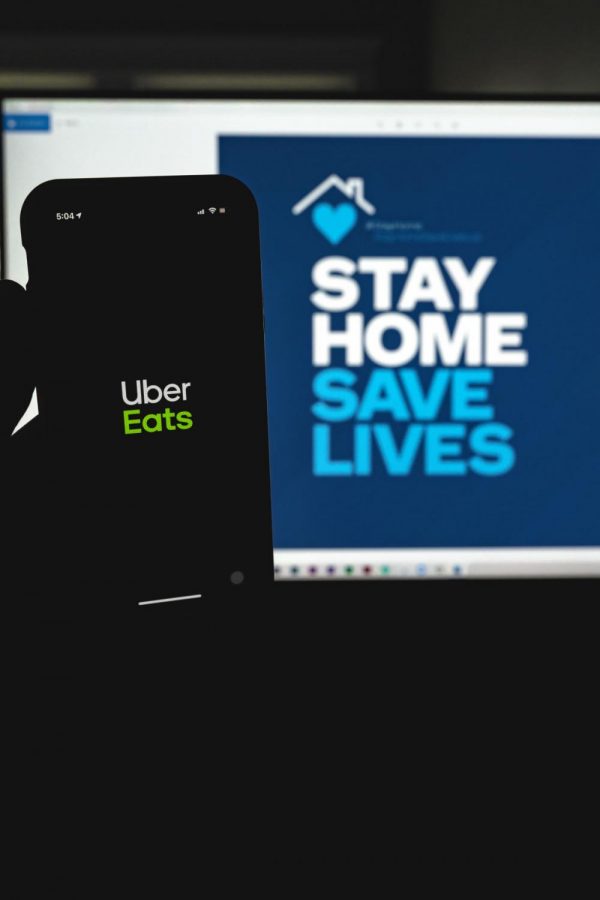Who is Essential?
April 22, 2020
When COVID-19 struck major cities across America, social lockdown became mandatory. The first thought that came to everyone’s mind was whether or not they would be able to maintain their jobs. This notion of ‘essential’ businesses emerged and while some closed, others stayed open. What makes a business essential was unclear and many were left wondering what the criteria was. Can you argue your way into being deemed essential?
Partick Rollens, City of Corvallis Public Information Officer, shed some light on the topic. Rollens works in a government agency which is of course classified as an essential business. Rollens explains that his position, as well as neighboring operations such as law enforcement, medical and water production, provide baseline care and assistance the community depends on. They must stay open and continue their work regardless of what’s happening in the world.
The official regulations have been put in place by Governor Kate Brown. Every state creates their own criteria for what makes a business essential and Gov. Brown lays out Oregon’s specifications here. To summarize the document, to be an essential business you have to be providing food, health care, medical, pharmacy, pet resources and any other service that is critical for human health and functioning.
No where does the document specifically state anything regarding the in-between businesses like liquor stores, dispensaries or golf courses. It does say that for all other businesses to stay open [not mentioned in the list that must shut down] they must implement strong social distancing protocols. So, for liquor stores and other similar places, this is what they are doing to be able to continue operating.
Each business is coming up with their own ways to maintain social distancing. Adjusting work hours and schedules, uping cleaning cycles and working from displaced locations are just a few examples we’ve seen so far.
“We’re implementing a lot of creative ideas to maintain physical distancing among city workers. Some staff are able to work from home and have been equipped to do so. For staff that need to come into a typical office environment, we’re adjusting schedules so there are fewer people in the office at any given time,” Rollens said. “Some employees have the option of working on the weekends to avoid overcrowding in offices and work areas.”
Rollens predicts these guidelines will shift and change as we learn more about the virus and have a better idea of how many people have it, whether we’re flattening the curb or not and what precautions we need to implement.
“During the days leading up to Governor Brown’s order, we saw a series of increasingly strict announcements from the state banning social gatherings of 250 people, then 25 people, then everything.” Rollens said.
This is an extraordinarily stressful time for the Corvallis community especially with the long-term effects still unknown.
“We are seeing some very encouraging signs in the state’s long-term public health forecasting which suggests that these closures and physical distancing guidelines are working,” Rollens said. “I know this is hard, but let’s be patient and give the healthcare community a chance to get ahead of this pandemic.”
Hannah MacLaughlin, a Chipotle employee, is still working since Chipotle is considered essential to serve food. The business is taking similar precautions to other businesses in town by limiting the amount of people who can be inside at once and placing stickers on the floor where customers have to wait. If you’ve been to FredMyers recently than you’ve seen they are also using stickers to space people.
“No employees have been laid off, but many have decided to go on leave. Some of my coworkers are at risk or have home situations that don’t allow them to work during this time,” MacLaughlin said. “I think that all restaurants are essential because I think they keep people feeling better about the state of the world. Food is such an important part of life, and being able to have some sort of normalcy is important right now.”
MacLaughlin has been lucky to keep most of her hours at work with a 10% hazard pay to supplement, but remembers that not all restaurants can afford to compensate their employees so she has been trying to tip more.
Kaajal Mishra works at a food processing center that sends our ingredients to other more specified companies to make products such as ice cream, yogurt and pies. She works in the Quality Assurance and Regulatory Department that checks to make sure all products are up to standards before being sent out.
Mishra’s business is considered essential because it is important to produce food. Staying open means they have implemented similar measures to protect the employees.
“The processing plant is requiring people that spend the majority of their time there making food products to wear face shields along with their usual personal protective equipment like smocks, gloves, rubber boots, and ear plugs,” Mishra said. “Those working in the office adhere to strict social distancing measures by staying 6 feet apart from each other. Sneeze guards are also being utilized in the office as an additional precaution.”
Mishra said her company is encouraging her to work as many hours as she wants right now since a lot of her coworkers are unable to come to work. Everyone is doing the best they can to keep the operation moving as smoothly as possible.
“I started my job not too long after the COVID-19 crisis started so the hectic environment at work is normal for me. My coworkers, on the other hand, are eager to get back to what they remember as their normal,” Mishra said. “I feel like I have really good job security right now because food scientists are especially needed in times of crisis to make sure that the country is fed”
Mishra said while other companies are laying employees off, her place of work is the opposite since there has been a rise in demand for food recently.
Every business that remains open during this time is taking precautions to stay safe during the virus. It may seem shocking how many businesses are actually essential to keep our dependent, interconnected society up and running. The best we can do is avoid others the best we can and try to support those who are working everyday to help the rest of us safe.






